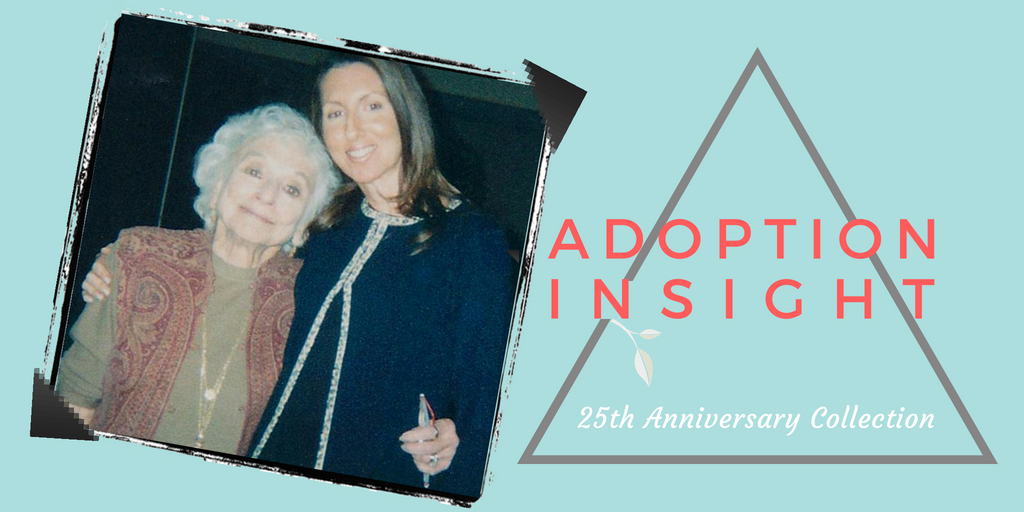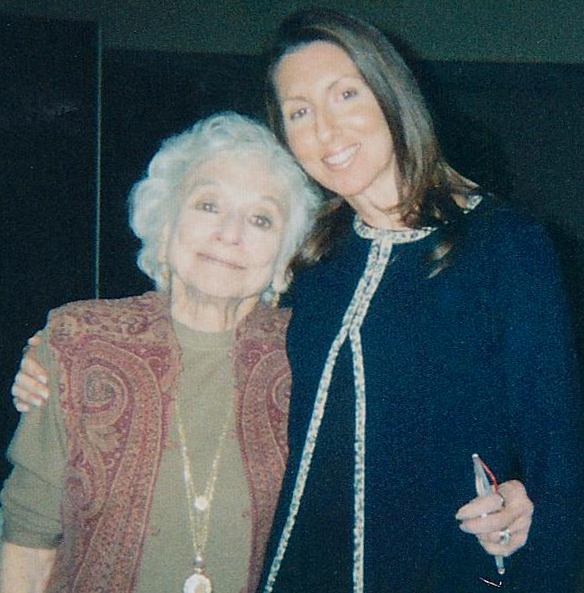
Adoption is cool again. Talking about adoption, I mean. Adoption issues. And writing about adoption issues. Speaking the truth about adoption. So in this, the 25th anniversary of my baptism into the world of adoption reform, I’m circling back to do it again in this new century.
The most interesting part of it now, at least for me, about revisiting and reissuing my articles? It’s that I bring (what’s called in the research world) a longitudinal perspective to the adoption issues I once wrote about so prolifically. In English, that means simply due to the fact that I’ve continued to live with and navigate adoption issues over the years since first plumbing them in my writing and speaking, I have gained a perspective that only comes with the passage of time and living life with abiding curiosity (plus intermittent bouts of therapy, natch).
Annette Baran, my first teacher
Right about this time of year back in 1993, I sat across from one of the great adoption reform pioneers, Annette Baran, at her kitchen table. I was spinning. I was on fire with the burn that comes from brand new insights and awakenings. I had started working with a primal therapist (not my first therapist and not my last) a few months earlier, awakening a tsunami of understanding about adoption issues in my own life—how adoption had shaped me.

Annette and me, Traverse City, circa 1995
At that point, I hadn’t seen Annette for 12 years, when she’d appeared in my Emmy-nominated CBS documentary segment, “Adoptees in Search.” She was a co-author of the landmark book The Adoption Triangle and provided an expert’s perspective. I can still hear her voice in my segment resound in my memory all these 37 years later: “Adoptive parents need not feel afraid when their children in adulthood seek to search. They’re looking for someone who looks like them, who feels like them genetically. But emotionally, their ties will still be to their adoptive parents.”
Of course this was an oversimplification, as Annette would be the first to acknowledge. But that’s what a pro says when she knows she’ll be edited down to a 30-second soundbite. We had chatted while the crew set up for the shoot, about the fact that I had met both my birth parents a few years earlier and the fact that in terms of adoption stuff, I was fine just fine no issues here, don’t know what the big deal is about.
Annette told me to feel free to call her if I ever felt the need. I never felt the need and I never called. Well, not for a dozen years.
Motherhood brought me to my knees
By the time I picked up the phone to call Annette and revisit adoption issues 12 years later, I had a 4-year-old son and a 6-month-old daughter. My Thing’s are perfect, I’m handling everything fine persona—my so-called “false self”—that had thwarted a few earnest attempts at therapy had been shredding under the pumice of my son’s raw baby neediness, his control-shattering toddler defiance, and the (to me) terrifying demands for intimacy that children naturally make.
Mothering had broken me apart, and was now urging me toward wholeness.
Over the phone, Annette remembered me immediately and greeted me warmly. We didn’t mess around with much small-talk and I got to my point:
“I have this theory,” I said tentatively, “that adoptees may come into the world already wounded.” I probably held my breath while waiting for her response.
Annette (in true Annette style) was unfazed, and didn’t miss a beat in answering.
An exotic entry into the adoption issues literature
“Well,” said Annette, “there’s the work that D.W. Winicott did back in the fifties, you know, on the effects that separation has on babies and mothers, and then just lately there’s a woman by the name of Nancy Verrier, who’s talking about what she calls the primal wound.”
Annette pronounced the words primal wound as if she were reading the name of an exotic, unfamiliar dish off a menu.
I got a chill. “That sounds like something. Can I read anything about it? Has she published anything on it?”
At that point, Nancy had only published a preliminary article in the journal of APPPAH (Association for Prenatal & Perinatal Psychology and Health), an organization I would end up becoming deeply connected to in future years. Annette sent it to me, and that was really the start.
I wasn’t crazy. I wasn’t alone in my feelings or experiences.
I was on my way. Two weeks later I was sitting in Annette Baran’s kitchen, plotting how I would bring to light most effectively my new discoveries about adoption issues.
![]()
Coming next: Reissues of classic articles, with
introductory remarks and inside scoop!
![]()
![]()
Stay in the Adoption Insight Loop:
I’ll Notify You About New Posts
Tags: adoption, Annette Baran, Nancy Verrier, open adoption, primal wound, reform


